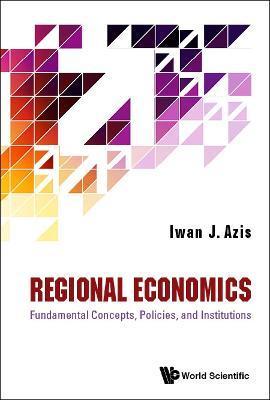Regional Economics: Fundamental Concepts, Policies, and Institutions

Regional Economics: Fundamental Concepts, Policies, and Institutions
Regional Economics: Fundamental Concepts, Policies, and Institutions is a unique and unconventional economics textbook which emphasizes the role of 'space' in economics and highlights the importance of non-economic factors particularly the role of institutions in regional development. It also presents the approach on how to evaluate regional development performance based on economic, social, and environmental considerations, which is the organizing principle for meeting people-oriented development and sustainable development goals. Other essential concepts such as 'regional science' and 'spatial economics' are also explored in this book.
Why activities tend to be spatially concentrated and can get more intensified despite efforts to disperse them toward other regions? Why infrastructure development intended to increase activities and improve the population's welfare can produce the opposite outcome of greater interregional inequality? What is the role of regional and national policies in affecting growth incentives, and how non-economic factors such as institutions and the quality of local leaders can make a difference in welfare achievement? Addressing these questions allows readers to better understand the various phenomena in the actual development process.
PRP: 595.00 Lei
Acesta este Prețul Recomandat de Producător. Prețul de vânzare al produsului este afișat mai jos.
535.50Lei
535.50Lei
595.00 LeiLivrare in 2-4 saptamani
Descrierea produsului
Regional Economics: Fundamental Concepts, Policies, and Institutions is a unique and unconventional economics textbook which emphasizes the role of 'space' in economics and highlights the importance of non-economic factors particularly the role of institutions in regional development. It also presents the approach on how to evaluate regional development performance based on economic, social, and environmental considerations, which is the organizing principle for meeting people-oriented development and sustainable development goals. Other essential concepts such as 'regional science' and 'spatial economics' are also explored in this book.
Why activities tend to be spatially concentrated and can get more intensified despite efforts to disperse them toward other regions? Why infrastructure development intended to increase activities and improve the population's welfare can produce the opposite outcome of greater interregional inequality? What is the role of regional and national policies in affecting growth incentives, and how non-economic factors such as institutions and the quality of local leaders can make a difference in welfare achievement? Addressing these questions allows readers to better understand the various phenomena in the actual development process.
Detaliile produsului











